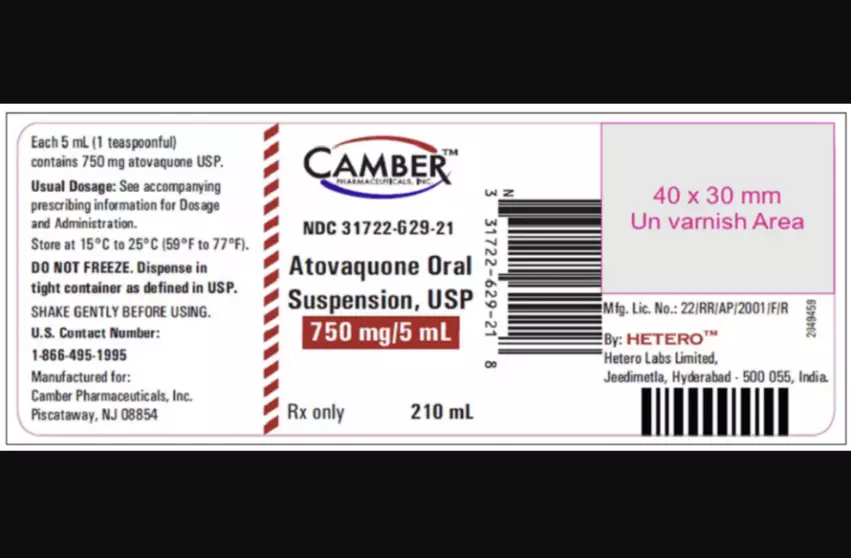Antibiotic recalled due to risk of endocarditis, other life-threatening infections
The U.S. Food and Drug Administration (FDA) has announced that Camber Pharmaceuticals, a New Jersey-based subsidiary of Hetero Labs, is recalling one lot of a popular antibiotic due to potential Bacillus cereus contamination. The antibiotic, atovaquone, is prescribed to prevent and treat pneumocystis jiroveci pneumonia in adults and older children who can’t tolerate other treatment options.
According to an advisory on the FDA’s website, there is a “reasonable probability” that any immunocompromised patients exposed to contaminated atovaquone could develop “life-threatening infections such as endocarditis and necrotizing soft tissue infections.” Endocarditis is severe inflammation of the heart, typically associated with an infection.
To date, this issue has not been associated with any adverse events among patients.
The recall covers lot E220182 of atovaquone oral suspension, USP. The medication is packaged in a 210-mL bottle. Retailers and other customers in possession of this medication should stop selling it immediately, the FDA warned.
Camber Pharmaceuticals has already started notifying all distributors and customers impacted by this recall. The company hopes to have all potentially contaminated unites of atovaquone returned as soon as possible.
Patients and healthcare providers should report any adverse events or quality issues to the FDA’s MedWatch Adverse Event Reporting program. Click here for additional information from the agency.


